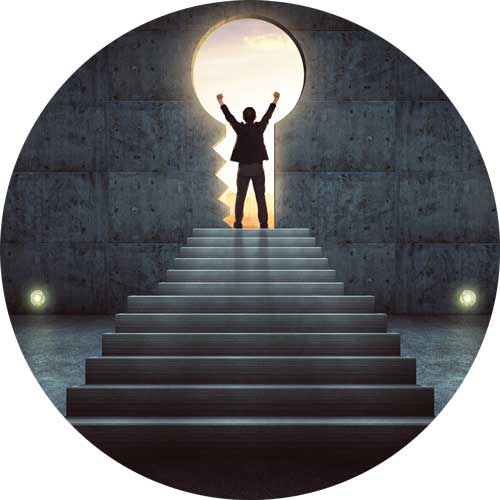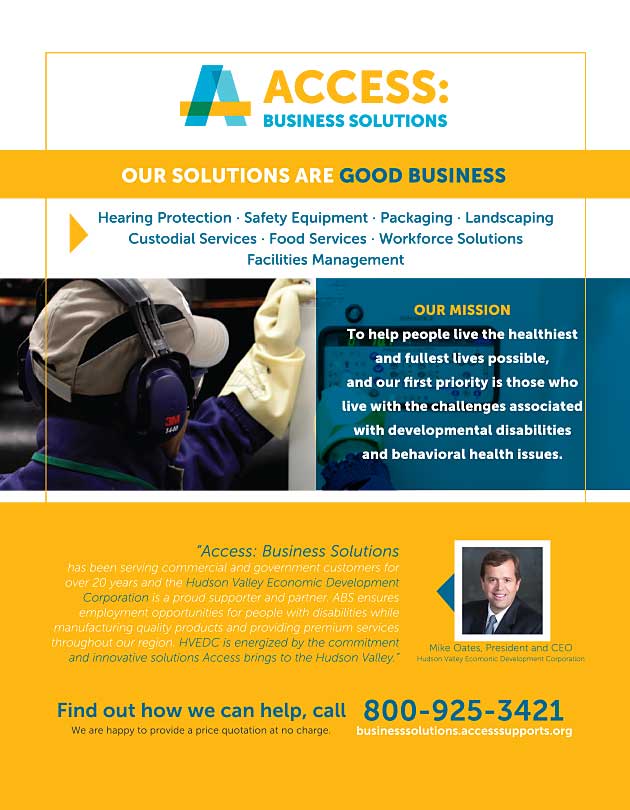CRYSTAL RUN HEALTHCARE | BY NICHOLAS BATSON, MD, MMM
GRIT AND RESILIENCE

With all the distractions, how can anyone accomplish anything?
It requires sustained, intentionally focused action and decisions, the optimism to know that the obstacles will happen and the confidence to overcome any barriers that arise.
The multitude of distractions in our personal and professional lives is exponentially increasing. News and social media bombard our electronic devices with reports of impending war and economic downturn. A global pandemic with intermittent surges, social changes in diversity and equality not seen in generations, and supply chain issues impacting short and long-term decision-making at home and work are only a few distractions that influence daily life. How can anyone accomplish anything, let alone have goals with so many distractions? The short answer: through Grit and Resilience. Getting there, however, requires sustained, intentionally focused actions and decisions, the optimism to know that obstacles will happen, and the confidence to overcome any barriers that arise.
The ancient Greek philosopher Aristotle’s virtue of Courage is one of the earliest conceptual descriptions of Grit. A courageous person is aware of the challenges and barriers of life but chooses to face them, knowing that the end is the ultimate goal and knowing that fear is normal in challenging situations. Psychologist
 Angela Duckworth’s research in the early 2000s provides a more contemporary definition of Grit. Her findings show that Grit is the passionate pursuit of long-term goals not necessarily influenced by ability or random good fortune. Grit provides the framework for finding the meaning and value of these goals.
Angela Duckworth’s research in the early 2000s provides a more contemporary definition of Grit. Her findings show that Grit is the passionate pursuit of long-term goals not necessarily influenced by ability or random good fortune. Grit provides the framework for finding the meaning and value of these goals.
Duckworth’s findings show Grit and perseverance are more strongly related to positive outcomes than only having consistent interests. Put more simply, Grit is the answer to the question of Why. Why does a person pursue their goals?
The answer of Grit leads to the subsequent question of How people pursue their goals. The work environment is an ever-evolving balance between high-quality efficient output and entropy. Often the employee is caught in the middle trying to do their best to succeed. The 21st century worker is increasingly specialized in their field, expensive to train, and even more costly to replace.
Even for professions where stress is an inherent element of the job, workplace stress occurs when the working environment is not compatible with the employee’s personal Grit. A mutual understanding binds the employee/employer relationship that the employee will engage in wellness and the employer will create a place geared for everyone’s success. A Japanese study investigating stress management in the manufacturing industry found that job strain and stress could be decreased by promoting worker autonomy, clarifying roles and responsibilities, and providing a mutually supportive reward system. Numerous examples show that reducing workplace stress enhances productivity, increases job satisfaction, and lowers adverse events in the workplace. So, if employers can foster Grit, the Why, then what is needed to address the How?
While Grit is the road map, Resilience is the tool to overcome the bumps and potholes along the way.
While Grit is the road map, Resilience is the tool to overcome the bumps and potholes along the way. Resilience is a state of well-being in which a person utilizes inner resources, social understanding, and cultural navigators to cope with life stressors to survive and recover, thrive, and learn from these experiences to contribute to society. In other words, the ability to function and achieve results during stress while taking calculated risks. Resilience is how you bounce back.

Resilience is not a trait that you have or do not have. Nor does it mean you will never experience distress or adversity. Everyone has the inborn capacity to develop resilience with internal cognitive and personality factors with external protective factors. Resilience comprises behaviors, thoughts, and actions that can be practiced, learned, and developed.
A 2014 study in the American Journal of Psychiatry investigated the brain areas that control the response to negative social stimuli. Introspection is examining and monitoring one’s own thoughts and feelings. This process occurs in a primitive brain structure located in the brain’s center called the insula. In an area of the brain between the eye and ear called the anterior cingulate cortex (ACC), different states of arousal are observed. During high-risk situations, the ACC is very active.
Several studies have demonstrated an inverse relationship between these two areas. For a person who has learned skills to decrease fear in a social situation, the insula is hyperactive and the ACC is hypoactive — demonstrating the brain’s adaptability to reappraise the emotional response to stressful situations.
A focused commitment to Grit, employing a combination of optimism, flexibility, and confidence, will cultivate Resilience.
Resilient people have a standard way they interact with their internal experiences and the external world. Dr. Lucy Hone, a researcher in resilience, finds three commonalities among highly resilient persons. Resilient people know that bad things will happen in life, can focus attention on the positive, and have the ability to reflect if their choices are helpful or harmful to their goals. All of these are achievable regardless of someone’s degree of pessimism. Fortifying resiliences requires a wellness mindset. Wellness is engaging in life by increasing awareness and active participation in daily choices to live a more fulfilled and healthy experience. The domains of wellness prioritize building connections and relationships at work and home. A conscious effort to attend to physical health through movement, balanced nutrition, and adequate sleep. The fostering of a non-judgemental understanding of your thoughts, feelings, and behaviors through mindfulness. Resilience is adapting to change and How a person can pursue their goals.

Excellence is derived from the Greek word Arête, meaning the principle for living life focused on fulfilling a purpose. By that classic definition, a life lived fulfilling long-term goals is an Excellent one. Undoubtedly these are challenging times, but fortunately, everyone has the innate ability to overcome these obstacles. A focused commitment to Grit, employing a combination of optimism, flexibility, and confidence, will cultivate Resilience in all areas of life and champion Excellence in the everyday experience.
Nicholas Batson, MD, MMM is a Psychiatrist Board Certified in Adult, Child & Adolescent Psychiatry. Dr. Batson earned his BA from the University of Louisville in Louisville, KY, and earned his Medical Degree from the American University of the Caribbean School of Medicine, Cupecoy, St. Maarten. He completed his Residency in Psychiatry at Wake Forest University Baptist Medical Center, Winston-Salem, NC, and completed his Fellowship in Child and Adolescent Psychiatry at the University of Louisville in Louisville, KY. Dr. Batson earned his Master of Medical Management for Physicians (MMM) degree at Carnegie Mellon University. He serves as both the Division Lead for Psychiatry, and Medical Director of Surgical Services at Crystal Run Healthcare. His clinical interests include Child Psychiatry, Adolescent Psychiatry, Adult Psychiatry, ADHD and Disruptive Behavioral Disorders, Mood Disorders, Family Therapy, Psychotic Disorders, and Developmental Disorders. Dr. Batson is currently seeing patients in Middletown.

Nicholas Batson, MD, MMM
Board Certified: Adult Psychiatry, Child & Adolescent Psychiatry
Crystal Run Healthcare



